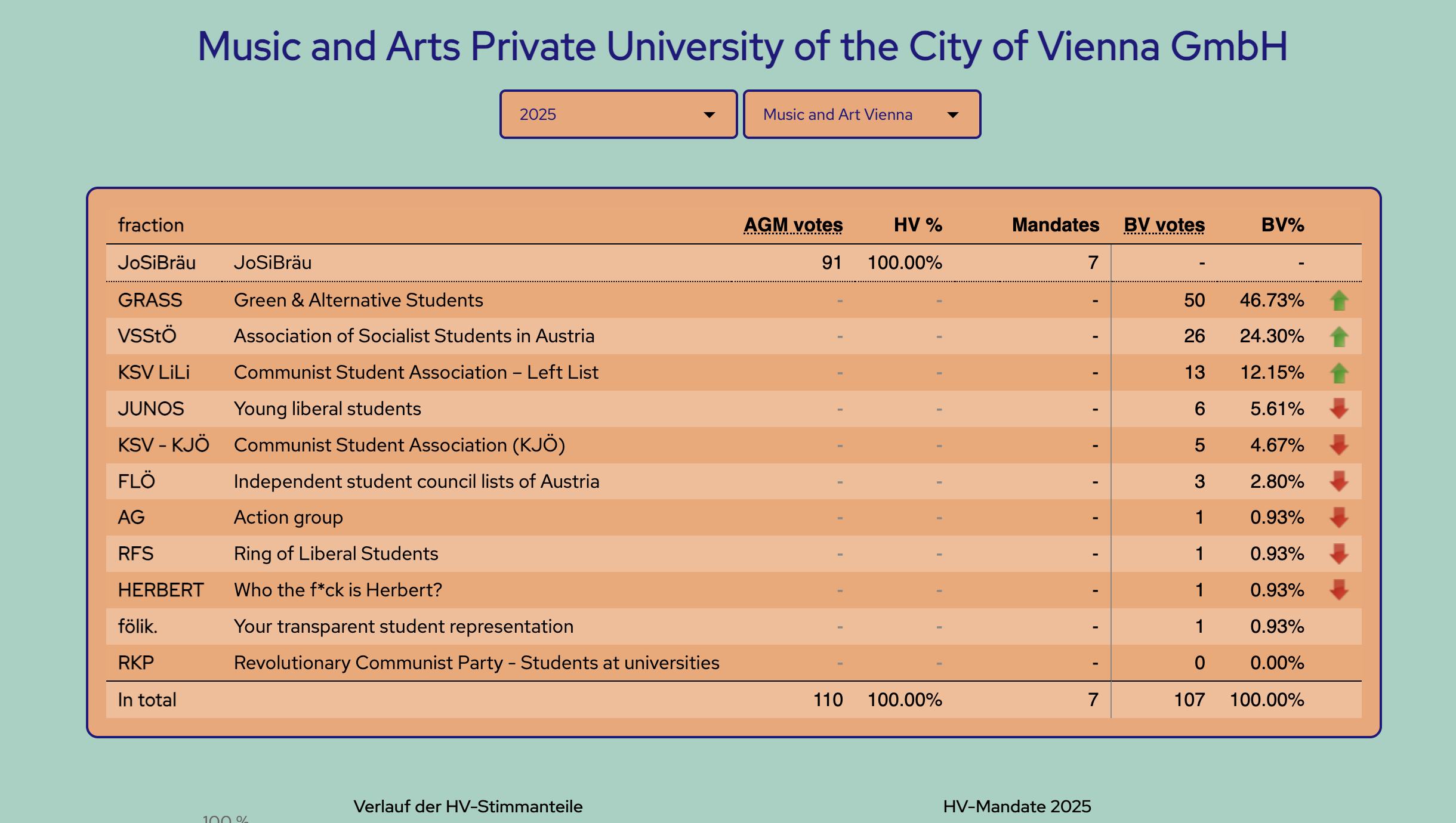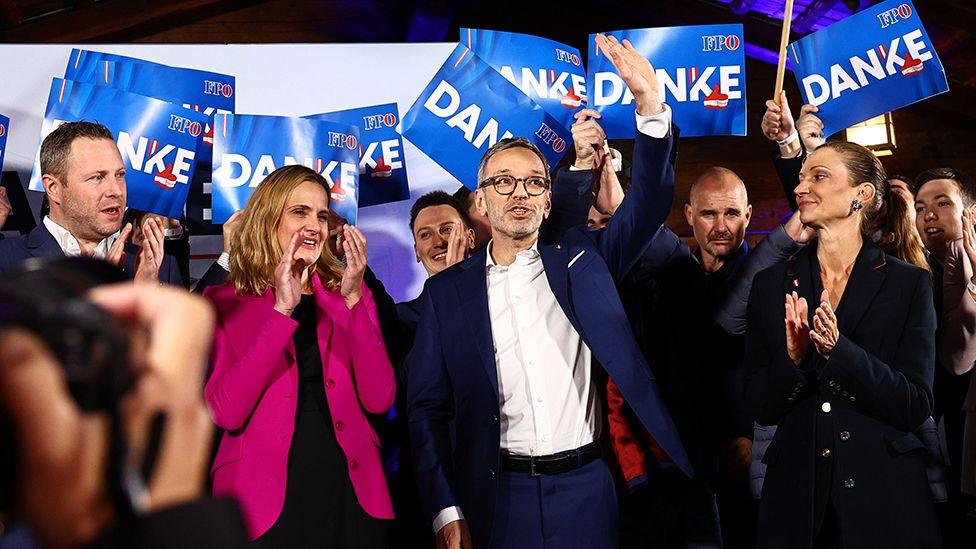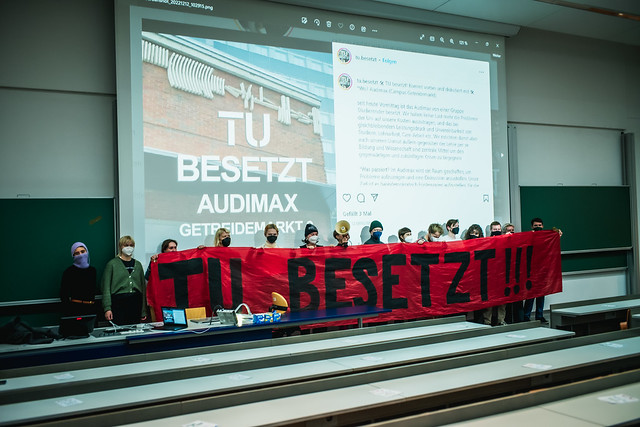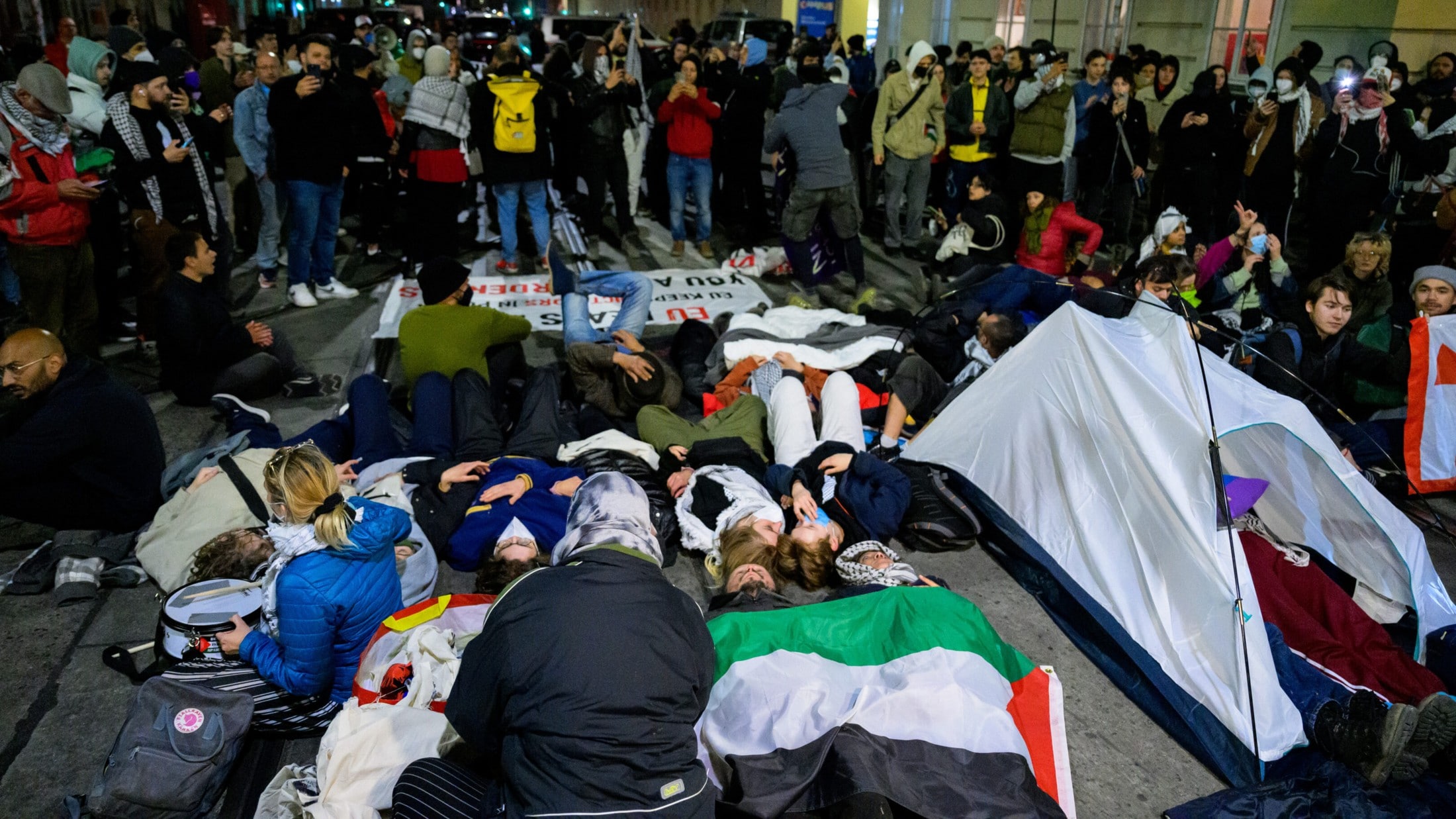As I type, a UK-EU “reset” summit is due to be held in 24 hours’ time, and in the face of “Brexit betrayal” and “surrender summit” commentary from the likes of former Home Secretary Suella Braverman, the government is out on the media rounds talking up Europe.
As such, it could probably have done without our Eurovision entry getting the dreaded “nul points” from televoters across the continent on Saturday night.
The Swiss are especially upset about a voting system that saw them come second with juries but share our “nul points” with televoters – although the commentary there is characteristically introspective.
It’s probably for the best that UK journalists filed all of their stories after the full UK televote was published in the night. We always tend to vote for Malta and Israel – but we also gave points to Poland, Greece, Lithuania, Latvia and Albania, which was almost certainly more about the size of their diaspora in the UK than the quality of their entries.
Meanwhile our televoters managed to give “nul points” to eventual winners Austria – whose singer Johannes Pietsch is a “soprano” countertenor at the Music and Arts University of the City of Vienna.
Rehearsals in Basel means that JJ missed out on placing his vote in last week’s Österreichische Hochschülerinnenschaft elections. In Austria, SU elections are held at the same time, using the same platform, nationwide at three levels – the federal level (BV), the university level (HV), and field of study (STV).
Traditionally, the ÖH gets less interest in private universities, where significantly fewer students vote, and only one “list” tends to compete at the university level. In the federal election, political parties’ youth wings’ involvement means that the process picks up considerable national press coverage – and students’ participation in it at least involves national debates about higher education rather than who’s giving out the best lollipops.

It also means that politicians are much more likely to have been involved in student representation and university governance than in the UK – a decade or so ago, current higher education minister Christoph Wiederkehr was chair of JUNOS (Junge liberale Studierende), the liberal student faction affiliated with NEOS, which is sort of like the Lib Dems, just without the weird stunts.
But despite the level of influence, given the political situation in Austria, rectors likely feel like JJ in “Wasted Love” – despite having much to give, his love ultimately goes to waste because the recipient isn’t willing to fully engage.
I reach out my hand
Until a decade or so ago, the Austrian People’s Party (ÖVP) (the centre-right, Christian democratic party) was in a “grand coalition” with the Social Democratic Party (SPÖ) under Chancellor Werner Faymann, holding key ministries but facing criticism for slow reforms.
The ÖVP’s approach to higher education had typically balanced market-oriented perspectives with traditionalist values. Under Education Minister Martin Polaschek (an ÖVP appointee), they had focused on “stabilising university funding” while simultaneously introducing more restrictive admissions policies.
But like a lot of European countries, populism was on the march, and in 2017 it switched leader and formed a hardline coalition with the far-right Freedom Party (FPÖ) – although that collapsed in 2019 when the FPÖ’s leader was caught on camera discussing potentially corrupt deals with a woman posing as the niece of a Russian oligarch (the so-called “Ibiza scandal”).
Despite all of that, the Freedom Party (FPÖ) secured the largest vote share in last September’s federal election – and its stance on higher education was all about national identity, cultural conservatism, and scepticism towards progressive influences. Its manifesto was strong on the promotion of the German language and Austrian cultural values within universities, opposed “woke” ideology and “gender diktats”, and even proposed the reporting of mechanisms to flag “politically active educators”.

It topped the polls with nearly 29 per cent of votes – not quite enough to form a government, so the Austrian People’s Party (ÖVP) attempted to form a government with the Social Democrats (SPÖ) and the liberals (NEOS) to block the FPÖ.
When those talks collapsed in January 2025, President Van der Bellen tasked FPÖ leader Herbert Kickl with forming a government – leading to five weeks of negotiations between FPÖ and ÖVP, during which leaked documents revealed plans to significantly increase tuition fees, slash student representation in university governance, and tighten controls on academic freedom – as well as plans to restrict international student admissions, prioritise “native Austrian” applicants in competitive fields like medicine, and impose stricter oversight of academic content to curb what the FPÖ described as “leftist indoctrination.”
Eventually, Austria returned to a centrist coalition, with the ÖVP and SPÖ including NEOS in their new coalition, forming a government in March 2025 under Chancellor Christian Stocker (ÖVP). It’s quite a spread of views – the conservative ÖVP champions efficiency, market discipline and selective admissions with an eye toward business alignment, the centre-left SPÖ calls for open access, generous student grants and democratic governance as vehicles for social mobility, and the liberal NEOS promotes structural modernisation, flexible learning pathways and income-contingent loans to balance access with sustainability.
But you watch me grow distant
As in the UK, there are some major fiscal constraints. Austria’s budget deficit exceeded the EU’s 3 per cent limit in 2024 and is projected to reach 4 per cent in 2025, and so the coalition has agreed to implement cuts of €6.4 billion overall – with the ÖVP pushing for fiscal restraint, the SPÖ advocating for educational equality, and NEOS championing system reform.
And there’s no indication that the government will address the increasing financial pressure on university operations that led providers like TU Wien (Vienna University of Technology) to close its campus for a month as a cost-saving measure in the winter of 2022/23.
Students occupied the main auditorium under the banner “TUbesetzt” – calling it an unacceptable abdication of responsibility by both the government and the rectorate, given it denied students access to libraries, labs and study spaces right before exams.

They also criticized what they saw as conservative, outdated teaching and highlighted the lack of coursework on “societally relevant topics like queer-feminism, the climate crisis, and ethics” in technical curricula.
Occupiers demanded that the university recognize that “technology is not apolitical” and reform its teaching to prepare students for future challenges. On the same day, about 40 students at the University of Graz also occupied a lecture hall, focusing on campus sustainability (they demanded exclusively plant-based menus in cafeterias and more free student spaces) and mandatory climate-protection classes for all students.
Since the protest, TU Wien has launched its “fuTUre fit” initiative, culminating in a 2024 convention on sustainability, student-centered learning, and innovation. Key new initiatives include new courses like “Sustainability in Computer Science” and a sustainable design focus within the Faculty of Architecture.
You don’t want to go under
More widely, in the face of rocketing inflation, Austrian public universities had requested an extra €525 million, but ultimately only got €205 million in the 2024 budget. The government had previously topped up the national university budget by a total of €850 million to buffer rising prices – now a new multi-year commitment will only offset inflation and provide a “solid basis” for the next three years.
For students, an ÖH survey showed that students spend on average 43 per cent of their income on housing alone. Rising rents and utility costs are said to be pushing many into financial hardship, prompting calls for government intervention as private “luxury” student dorms proliferate but remain unaffordable.
The ÖH has urged reintroduction of a nationwide subsidy for student dormitories – abolished in 2011 – noting that since 1994, student grants had risen only about 15 per cent while living costs jumped roughly 90 per cent.
Even campus food has become a flashpoint. In 2024, student “mensas” (cafeterias) in Graz and Innsbruck shut down due to rising costs, while others hiked prices.
It cannot be that students have to go to the nearest supermarket or fast food because the local Mensa is outrageously expensive or even closed.
…argued ÖH chair Sarah Roßmann.

So far the coalition has only committed to maintaining the indexation of student financial aid to inflation, with the additional income limit for student grants already increased, and the value of study grants set to be adjusted for inflation each September.
When student numbers are capped, you can announce, take credit for and target investment – so it is growing study places in high-demand fields, particularly STEM subjects at Universities of Applied Sciences (UAS), with a goal of addressing skills shortages while also increasing the proportion of women in technical disciplines.
Digital transformation is seen as one of the ways out of the financial crisis – and with funding from government, Austria’s Digital University Hub (DUH) is attempting to achieve it via a major expansion in shared infrastructure rather than spend on commercial platforms.
There’s an Austrian University Toolkit (a modular IT toolkit for standard processes), a Digital Blueprint (a “toolbox for tech challenges”), ePAS+ (a national system for digital recruitment), HR4u (a national HR backbone), m:usi (a sports management platform), PASSt (a sector-owned student analytics platform), a Diversity Platform (a multilingual, interactive platform to enhance counseling and information processes), UVI-Sec (IT security enhancement) and uniCHAT (collaboration platform).
How do you not see that?
The FPÖ’s rise has been a challenge for a sector whose students are used to fighting far-right influence on campus. There have been ongoing protests, for example, against a University of Vienna professor (Lothar Höbelt) known for his far-right affiliations and favourable stance toward the FPÖ.
In 2020 left-wing and anti-fascist student groups repeatedly disrupted Höbelt’s lectures, eventually forcing the cancellation of one under slogans like “No room for Nazis at the university” – as well as protesting student fraternity (Burschenschaft) groups that they say use academic spaces to spread racist or antisemitic ideas.

More controversially, in late 2023 a “Pro-Palästina” protest camp was set up at the University of Vienna’s Altes AKH courtyard, demanding universities cut ties with institutions linked to military funding, including the European Defence Fund and the national defence program FORTE. Eventually, the police were sent in. Given Austria’s complex historical relationship with antisemitism and its post-World War II commitment to supporting Jewish communities and Israel, encampments were much more controversial than in the UK.
Both the university administration and the ÖH strongly condemned the protests, citing concerns over antisemitism, extremism, and the involvement of the BDS movement, and stressed the need for free but respectful discourse. Education Minister Martin Polaschek also called for “zero tolerance” towards hate, arguing that academic freedom should not shield extremism. FPÖ figures cheered the crackdown on the camp, claiming it validated their warnings about imported extremism on campuses – demanding harsher consequences for student protestors who “disrupt teaching” or “insult Austria”.
This wasted love
But probably the most interesting policy shift is one that is starting to recognise some of the limits of massification. While the universities of applied sciences are expanding, traditional universities have been told to tighten admissions for postgraduate courses and introduce more selective entry criteria.
It’s being discussed as a more “managed” expansion, in areas deemed to be economically strategic – and while government has tried to balance it all by indexing student grants to inflation and expanding support for underrepresented groups in STEM, the critique is that vocational will seen as the more accessible option, while traditional academic routes become even more exclusive than they are now.
That debate can be obscured in the UK, given the way in which we swedged together everything and called it a “university” back in 1992. But the coalition in Austria is grappling with the same problems that Labour is – Austria needs more graduates, just not that sort and not there. Coalition politics there may well mean it’s more likely to deliver it.













